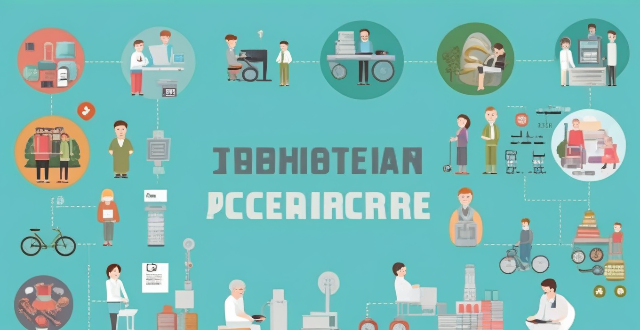Assets Care

What documents are typically included in an estate plan ?
An estate plan is a collection of legal documents that outline how an individual's assets and property will be distributed after their death. These documents can include various types of legal instruments, each serving a specific purpose in the estate planning process. Here are some of the most common documents included in an estate plan: - Last Will and Testament: A legal document that states how a person's property and assets will be distributed after their death. - Durable Power of Attorney: A legal document that grants authority to another individual (agent) to act on behalf of the principal in financial matters. - Healthcare Power of Attorney: A legal document that designates someone to make healthcare decisions on behalf of the principal if they are unable to do so. - Living Will: A document that provides instructions about your wishes for medical treatment and end-of-life care. - Trusts: A legal entity that holds and manages assets for the benefit of one or more individuals (beneficiaries). - Beneficiary Designations: The process of naming who receives the proceeds of a bank account, retirement account, or life insurance policy upon the account holder's death. - Letter of Intent: A non-legal document that provides additional information about personal wishes, sentimental items, and instructions for final arrangements.

What is the process for distributing assets after someone dies ?
The process for distributing assets after someone dies is known as probate. It involves filing the will, notifying beneficiaries and heirs, inventorying assets, paying off debts and taxes, and then distributing the remaining assets according to the terms of the will or state law if there is no will. The executor or administrator is responsible for managing the deceased person's estate and all potential beneficiaries and heirs must be notified of their rights and responsibilities.

How can I protect my assets from creditors or lawsuits ?
When it comes to protecting your assets from creditors or lawsuits, there are several strategies you can consider. These strategies aim to safeguard your wealth and ensure that you have financial security in case of legal actions against you. Here are some key steps to take: ### 1. **Create a Trust** A trust is a legal entity that allows you to transfer assets into it for the benefit of a third party, known as the beneficiary. By placing your assets into a trust, they are no longer directly owned by you, making them less vulnerable to creditors or lawsuits. There are different types of trusts, such as: - Revocable Living Trust: You can modify or revoke this type of trust during your lifetime. - Irrevocable Trust: Once created, you cannot change or cancel this type of trust. - Special Needs Trust: Designed for individuals with special needs, this trust helps them qualify for government benefits while still having access to funds for other expenses. ### 2. **Establish Limited Liability Entities** Forming limited liability companies (LLCs) or corporations can help protect your personal assets from business-related debts and lawsuits. These entities act as separate legal entities, meaning that their liabilities do not extend to your personal finances. Examples include: - Single Member LLC: Suitable for sole proprietors looking to limit their personal liability. - Multi-Member LLC: Ideal for partnerships where multiple members contribute to the business. - S Corporation: Offers pass-through taxation and limits shareholder liability to their investment in the company. ### 3. **Purchase Insurance** Having adequate insurance coverage is essential in protecting your assets from unexpected events. Make sure you have the following types of insurance policies: - Liability Insurance: Covers damages or injuries caused by you or your property. - Umbrella Policy: Provides additional liability coverage beyond your standard policies. - Homeowner's Insurance: Protects your home and belongings from damage or loss due to various perils. - Auto Insurance: Covers damages and injuries related to vehicle accidents. ### 4. **Diversify Your Assets** Spreading your wealth across different asset classes can help minimize the impact of any single lawsuit or creditor claim. Consider investing in: - Real Estate Investment Trusts (REITs): Allows you to invest in real estate without owning physical property. - Stocks and Bonds: Diversify your portfolio with various securities to reduce risk. - Precious Metals and Cryptocurrencies: Non-traditional assets that may offer protection against market volatility. ### 5. **Consult with Professionals** Before implementing any asset protection strategy, it's crucial to consult with professionals who specialize in this area, such as attorneys, financial advisors, and accountants. They can guide you through the process, ensuring that you comply with all legal requirements and maximize the effectiveness of your chosen strategies.

How do I ensure that my digital assets are handled after my death ?
Managing digital assets after death requires careful planning and regular updates to keep pace with technological changes. This guide outlines steps to take to ensure your online presence is handled according to your wishes, including inventorying assets, choosing a digital executor, including assets in your will, using digital legacy services, setting up access and instructions, and reviewing and updating plans regularly. By following these steps, you can protect your online legacy and provide clarity for your loved ones.

How can women protect their assets and ensure long-term financial security ?
The article provides a list of strategies that women can employ to ensure their financial security over the long term. These include building an emergency fund, investing in retirement accounts, purchasing life insurance, creating a will, considering long-term care insurance, educating oneself about finance, working with a financial advisor, and prioritizing career development. Each of these steps is crucial in its own way for safeguarding one's assets and ensuring financial stability.

How do I provide care for someone experiencing anaphylactic shock ?
Anaphylactic shock is a severe allergic reaction that requires immediate care. To provide care for someone experiencing it, recognize the symptoms like skin reactions and respiratory distress, call for emergency help, use an epinephrine auto-injector if available, position the person comfortably, loosen tight clothing, keep them calm, monitor vital signs, and follow instructions from emergency personnel. Timely action can greatly improve the chances of recovery.

How do I care for and maintain my luxury purchases ?
This guide offers comprehensive advice on how to care for various luxury items, including designer handbags, fine jewelry, high-end watches, leather goods, and shoes/apparel. It emphasizes the importance of following manufacturer's instructions, proper storage, gentle handling, regular maintenance, and insurance. Specific tips are provided for each type of luxury item, such as cleaning methods, protection against water damage, and professional check-ups. The guide also suggests avoiding harsh chemicals, focusing on quality over quantity, and seeking professional help for specialized care. By implementing these strategies, individuals can maintain the beauty and functionality of their luxury purchases for years to come.

What is estate planning ?
Estate planning is a comprehensive process involving the organization, management, and distribution of assets to minimize taxes and ensure wealth transfer to heirs. Key elements include wills, trusts, power of attorney, health care directives, beneficiary designations, gifting strategies, tax planning, asset protection, long-term care planning, family business succession, and charitable giving. Estate planning ensures wishes are honored, provides financial security, minimizes taxes and legal fees, and protects beneficiaries.

How does telemedicine improve patient care and access to health services ?
Telemedicine improves patient care and access to health services by increasing accessibility for both rural and urban patients, enhancing continuity of care, offering cost efficiency, providing a better patient experience through personalized care and convenience, and enabling data-driven decision making.

How to care for and maintain your sports fashion garments ?
Sporting fashion garments are designed to be both stylish and functional, but they also require special care to maintain their quality and appearance. Here are some tips on how to properly care for and maintain your sports fashion garments: Washing instructions include reading the label, sorting clothes, using a gentle detergent, hand washing or machine washing on delicate cycle, and avoiding tumble drying. Maintenance tips include storing properly, avoiding ironing, spot cleaning stains, rotating garments, and repairing tears and holes. By following these care and maintenance tips, you can extend the lifespan of your sports fashion garments and keep them looking their best for years to come.

How are robotics changing surgery and patient care in hospitals ?
The integration of robotics in hospitals is revolutionizing surgery and patient care by enhancing precision, reducing recovery time, increasing accessibility to specialized care, improving training and education, streamlining operations, and fostering personalized medicine. Robotic-assisted surgery offers greater accuracy and minimally invasive techniques, leading to quicker healing and less trauma for patients. Telerobotic surgery expands access to expert care across geographical barriers. Simulation technologies provide a safe environment for surgical practice and the development of new techniques. Automation improves hospital efficiency, from dispensing systems to record management. Personalized medicine is facilitated through customized treatment plans tailored to individual patient needs. Overall, robotics is transforming healthcare delivery, making it more efficient, effective, and accessible.

Do sports rehabilitation centers offer preventative care to avoid future injuries ?
Sports rehabilitation centers play a crucial role in offering preventative care services to help individuals avoid future injuries. They provide comprehensive assessments, customized exercise programs, education and training, utilize advanced equipment and technology, and collaborate with healthcare professionals to improve overall health and reduce the risk of re-injury.

Are there any natural or organic feminine care products available in the market ?
Natural and organic feminine care products have become increasingly popular as consumers seek gentler, chemical-free options for their personal hygiene. These products include natural deodorants, organic tampons and pads, shampoos and soaps made with plant-based ingredients, herbal remedies for menstrual pain relief, dietary supplements to support hormonal balance, and skincare solutions for feminine areas. By choosing these products, individuals can prioritize their health while also supporting sustainable practices in the beauty industry.

What are some effective strategies for managing chronic conditions as part of personal health care ?
Managing chronic conditions requires a combination of self-care, education, lifestyle changes, and support from others. Developing a self-care plan, educating yourself about your condition, making healthy lifestyle choices, and seeking support from family and friends are all effective strategies for managing chronic conditions. By taking an active role in managing your symptoms and communicating effectively with your healthcare team, you can improve your overall quality of life and reduce the impact of your condition on your daily activities.

What is the difference between a will and a trust ?
The text discusses the differences between wills and trusts in estate planning, highlighting key areas where they diverge. A will is a legal document outlining distribution wishes for assets after death, requiring witnesses and taking effect posthumously. It allows control over assets during one's lifetime and goes through probate, a public process. Wills are flexible and generally less costly to create but offer no tax benefits. Conversely, a trust involves transferring property to a trustee for beneficiaries, with creation and effectiveness varying. Trusts can avoid probate, offering privacy and potential tax benefits but at a higher initial cost and less flexibility, especially if irrevocable. Choosing between them depends on individual needs and preferences.

How can women ensure they have access to medical care and support in case of illness or injury while traveling ?
How Can Women Ensure They Have Access to Medical Care and Support in Case of Illness or Injury While Traveling? Traveling can be an exciting adventure, but it's important to ensure that you have access to medical care and support in case of illness or injury. Here are some tips for women to ensure they have access to medical care while traveling: 1. Research Before You Go: Before embarking on your journey, research the local healthcare system and facilities. Look for hospitals, clinics, and pharmacies in the area you will be visiting. Make a list of emergency numbers and keep them with you at all times. 2. Get Travel Insurance: Consider purchasing travel insurance that includes medical coverage. This will give you peace of mind knowing that you are covered in case of an unexpected illness or injury. 3. Pack a First Aid Kit: Pack a first aid kit with essential items such as bandages, antiseptic wipes, pain relievers, and any prescription medications you may need. It's also a good idea to bring along copies of your prescriptions in case you need to refill them while traveling. 4. Stay Healthy: Take steps to stay healthy while traveling. Wash your hands frequently, eat nutritious meals, drink plenty of water, and get enough sleep. Avoid risky behaviors such as excessive alcohol consumption or participating in dangerous activities without proper safety gear. 5. Seek Help When Needed: If you do become ill or injured while traveling, don't hesitate to seek medical attention. Many countries have English-speaking doctors and nurses who can provide assistance. If you are unable to communicate effectively with local healthcare providers, consider using translation services or seeking out expatriate communities for support. In conclusion, ensuring access to medical care and support while traveling is crucial for women's health and safety. By doing your research beforehand, getting travel insurance, packing a first aid kit, staying healthy, and seeking help when needed, you can enjoy your travels with peace of mind knowing that you are prepared for any potential emergencies.

What is probate, and how can I avoid it ?
This text discusses probate, the legal process of transferring a deceased person's assets to their heirs or beneficiaries. It explains why many choose to avoid probate, which can be time-consuming and costly, and outlines various methods for doing so, such as creating a revocable living trust, joint tenancy with right of survivorship, pay-on-death accounts, transfer-on-death designations, gifting assets during one's lifetime, designating beneficiaries on retirement accounts and life insurance policies, using a will with a probate avoidance clause, and considering state-specific strategies. The text emphasizes the importance of careful planning and consulting professionals to ensure assets are distributed according to one's wishes without court interference.

How do I create a comprehensive estate plan ?
Creating a comprehensive estate plan is essential to ensure your assets are distributed according to your wishes after you pass away. Here are some steps to help you create a comprehensive estate plan: 1. Determine your goals and objectives, such as who you want to inherit your assets and how you want them distributed. 2. Gather information about all your assets, including real estate, bank accounts, investments, life insurance policies, and personal property. 3. Choose beneficiaries for your assets, including individuals, charities, or trusts. 4. Consider tax implications, such as federal and state estate taxes, gift taxes, and generation-skipping transfer taxes. 5. Create legal documents such as a will, power of attorney, healthcare proxy, and living will to ensure your wishes are carried out in case of incapacity or death. 6. Set up trusts to manage your assets during your lifetime and distribute them after your death. 7. Review and update your plan regularly to ensure it remains current with changes in your life. Working with a qualified professional can help ensure that your estate plan meets your needs and achieves your desired outcomes.

Do I need a lawyer to create an estate plan ?
Estate planning is important for ensuring that your assets are distributed according to your wishes after you pass away. While it is possible to create an estate plan without a lawyer, working with a legal professional can provide numerous benefits such as legal expertise, customized plans, and peace of mind. However, if you have a simple estate with few assets and no complicated family dynamics, creating a basic estate plan using online tools or templates may be sufficient. It is still important to consult with a lawyer to ensure that your plan meets all legal requirements and addresses any potential issues.

How do DeFi tokens work ?
Decentralized Finance (DeFi) tokens are digital assets operating on blockchain technology, designed to facilitate financial transactions without intermediaries. These tokens can represent various assets like currencies, commodities, and cryptocurrencies. Key features of DeFi tokens include decentralization, smart contracts, and interoperability. They work through token issuance, utility within their respective projects or platforms, and governance mechanisms allowing holders to vote on important decisions related to the project's development. Benefits of DeFi tokens include accessibility, transparency, and innovation in financial products and services.

How do I maintain and care for my brushless motor ?
Taking care of your brushless motor is essential to ensure its longevity and performance. Here are some tips on how to maintain and care for your brushless motor: Regular Cleaning: - Clean the motor, heat sink, and propeller regularly to remove dirt, dust, or debris. Lubrication: - Lubricate the bearings with a high-quality lubricant to reduce friction and wear. - Avoid overlubrication as it can attract dirt and debris. Inspection: - Inspect the motor, wiring connections, and propeller for any signs of damage or corrosion. - Replace damaged components or the entire motor if necessary. Storage: - Store your brushless motor in a dry place to prevent moisture from entering the motor. - Avoid storing the motor in direct sunlight to prevent discoloration and damage to the components. Usage: - Avoid overloading the motor by using the appropriate propeller size and battery voltage. - Use a LiPo battery with an appropriate C rating for optimal performance. - Avoid exposing the motor to water as it can cause damage to the electronic components. By following these maintenance and care tips, you can ensure that your brushless motor performs at its best and lasts for a long time.

What precautions should women take during menstrual health care ?
Women should maintain good hygiene, use appropriate sanitWomen should maintain good hygiene, use appropriate sanithydrated, exercise regularly, use appropriate sanitary products, stay hydrated, exercise regularly, manage stress, eat a healthy diet, and seek medical help when needed during menstrual health care.

What role do healthcare workers play in effective pandemic management ?
The role of healthcare workers in effective pandemic management includes diagnosis and treatment, prevention and control measures, contact tracing and testing, vaccination programs, mental health support, and collaboration with other healthcare professionals. Their expertise and dedication are crucial in reducing the spread of the virus and improving patient outcomes.

What are the basic pet care tips for a new pet owner ?
This text provides basic pet care tips for new pet owners, covering topics such as feeding, exercise, grooming, health care, and safety. It emphasizes the importance of choosing the right food, providing fresh water, establishing a feeding schedule, monitoring portion sizes, offering daily exercise and mental stimulation, promoting socialization, maintaining regular grooming habits, trimming nails, cleaning ears, caring for dental health, scheduling routine veterinary visits, being prepared for emergencies, discussing preventive measures with a veterinarian, providing a secure sleeping area, creating a safe environment, and ensuring proper identification for lost pets. Overall, the text aims to help new pet owners meet their pets' basic needs and promote their happiness and health.

How can we ensure equitable access to healthcare during pandemic management ?
The article emphasizes the significance of equitable healthcare access during pandemics like COVID-19. It outlines various strategies to achieve this goal, including implementing universal health coverage, utilizing community health workers, expanding telehealth services, managing supply chains efficiently, conducting public education campaigns, providing financial support to vulnerable groups, and fostering collaborative partnerships. These measures aim to ensure that everyone has equal opportunities to receive medical care, regardless of their socio-economic status, race, ethnicity, or geographic location.

How can we promote self-care and self-love for women's mental health ?
Promoting self-care and self-love for women's mental health requires a comprehensive approach that includes creating awareness, providing resources, and establishing supportive environments. This involves understanding the importance of mental health, dispelling misconceptions, normalizing conversations, providing accessible information, offering therapeutic support, building community networks, implementing workplace initiatives, advocating for policies, encouraging mindfulness and meditation, promoting healthy lifestyle habits, and fostering self-reflection and growth. By adopting these strategies, we can empower women to take charge of their mental health and lead fulfilling lives.

What impact do immigration policies have on the healthcare system ?
Immigration policies can significantly impact a country's healthcare system, affecting access to care, quality of care, and cost of care. Legal immigrants may face eligibility restrictions for public health programs and language barriers, while undocumented immigrants may fear deportation and lack health insurance. Cultural competency is crucial for healthcare providers, and diversity in medical education is important. Financial burdens on hospitals and economic contributions from immigrants also play a role. Policymakers should consider these implications when crafting immigration legislation to create a stronger healthcare system for all members of society.

How has technology revolutionized the healthcare industry ?
The healthcare industry has been transformed by advancements in technology, including electronic health records, telemedicine, wearable devices, medical imaging tools, and robotic surgery. These innovations have improved efficiency, expanded access to care, and enhanced patient outcomes. As technology continues to evolve, it will play an increasingly important role in shaping the future of healthcare.